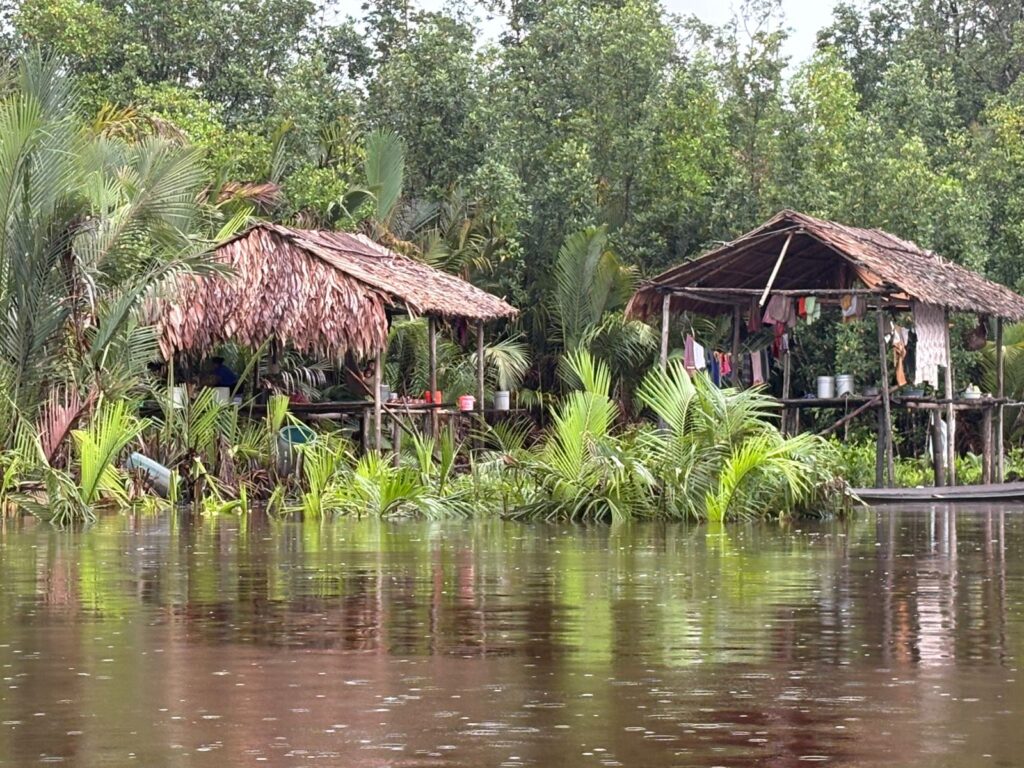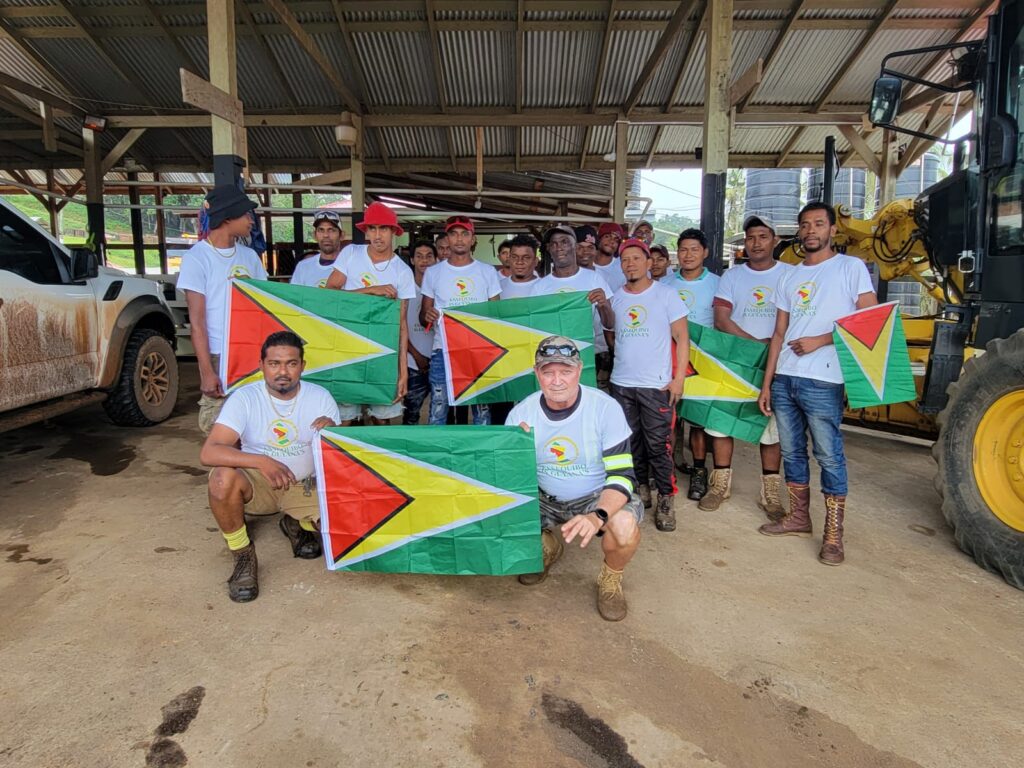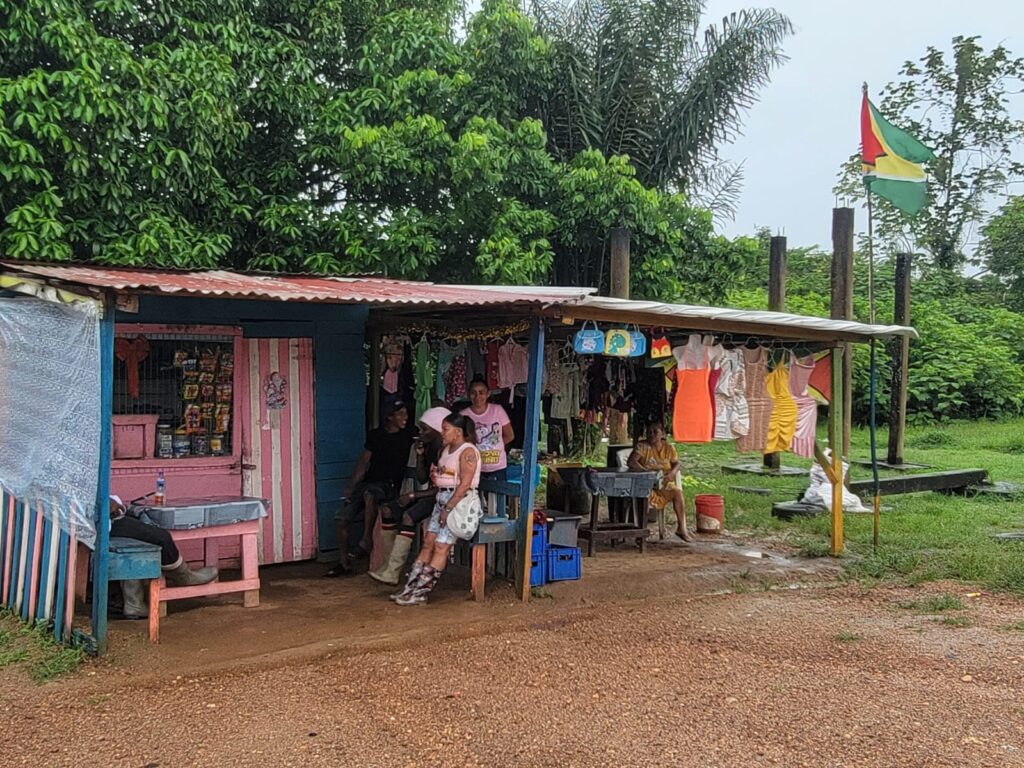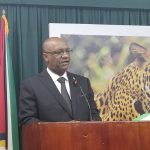
By Svetlana Marshall in Region One
Amid fierce objection from the opposition in Caracas and growing international pressure to desist from interfering with Guyana’s sovereignty and territorial integrity, the Nicolas Maduro Administration went ahead on Sunday with its election for parliamentarians and local governors, including for a Governor of Guyana’s Essequibo.
However, Maduro’s sham elections did not take place anywhere in Guyana’s territory.
The Maduro Administration, which has been continuing claims to Guyana’s territory, had vowed to proceed with the elections for a Governor for Guyana’s Essequibo, but a fact-finding mission to bordering communities in Barima-Waini (Region One) by a team of journalists on Sunday found no election in progress in Guyana. There was also no evidence of any campaigning or voter registration in the days leading up to Sunday.
At Pakera, a village within Matthews Ridge in the Northwest District, 26-year-old Venezuelan national, Maria Rivero was dressed in a white jersey that read “Essequibo is Guyana’s.”
Rivero told reporters that though she was taught otherwise growing up in Venezuela, she is convinced that Essequibo belongs to Guyana.
“I know Essequibo belongs to Guyana. I’m living in Guyana around nine years already. I get a baby, four years, and I don’t want President Maduro come here and destroy this country. It is something that makes me get vex and cry up all. I don’t want this man to come here and destroy this country,” Rivero said as she broke down in tears.

Rivero fled her home in Caracas amid a severe economic and social crisis. The country has been experiencing years of hyperinflation, rampant corruption, economic mismanagement and escalating crime and violence.
The young mother is now married to a Guyanese. Notwithstanding a 20-year-jail-sentence hanging over her head for conceding that Essequibo belongs to Guyana should she ever return to Venezuela, Rivero remains firm in her position.
“Essequibo belongs to Guyana. The man ain’t mek no sense to come and fight for land here for the oil because that is the only thing he want to come and fight for the minerals – the gold. How much gold Venezuela get nuff gold, nuff diamond, nuff money, nuff thing. He done with all of that, now he want to come and destroy here. No. He is just using the people to come and fight for he,” she said.
Rivero said no voting took place in the region. She is the lone Venezuelan living in Matthews Ridge.
Greggory Vincent – a Guyanese businessman, who has been living in Matthews Ridge for 15 years, said he is proud of his Guyanese heritage and history and knows Essequibo belongs to Guyana.

“Both myself and my employees, we are proud Guyanese, and we known that Essequibo belongs to Guyana. And, we will not give up Essequibo for nothing. We are Guyanese, we were born here, we were raised here, we were taught everything about Guyana, and the 83,000 square miles of Guyana, belongs to Guyana, and Guyanese, and so we will not give up Essequibo, and we are proud to wear this jersey to represent our land,” Vincent told reporters.
Mr. Vincent said while there is widespread propaganda and misinformation coming out of Venezuela, residents of Matthews Ridge rely on the information coming from the Government of Guyana, and other sources of information.
In Arakaka, a community located 12 miles south of Port Kaituma, it was ‘business as usual” for the relatively quiet community on Sunday.
Chairman of the Arakaka Community Development Council (CDC), 76-year-old John Phillips said there is a small group of Venezuelan migrants living in the community that is heavily dependent on gold mining.
“Nothing of the sort [took place]. Nobody came, nobody said anything. We haven’t even seen the few Venezuelans. Even the few that was round most of them move off. So, we have no problems as far as the elections are concerned, and campaign. Everything is quiet. We live well with the few that we have got, like I said it is very few of them, but we will well with them no problems,” Phillips said.

He said the more than 700 residents living in his community feel relatively secured, and are satisfied with President Irfaan Ali’s assurance will remain safe and its sovereignty and territorial integrity intact.
Stanwyck Bowen, a former Guyana Defense Force (GDF) soldier who has been living in Arakaka for the past 45 years, told reporters that it was a normal day for the people of Arakaka but he expressed the need for there to be greater security presence at border communities where there are high influxes of Venezuelans.
“I think the border should be strengthened because there are a lot of illegal immigrants coming in, undocumented and I wish to see more systems in place,” Bowen said.
He said while there are not many Venezuelans living in Arakaka, there are large numbers in other parts of the region like Baramita, Port Kaituma and Mabaruma, and they should be screened, thoroughly, before entering Guyana.
While reporting that there was no electoral activity taking place in Arakaka, Guyanese Sharon Williams said she feels unsafe given Venezuela’s increasing acts of aggression towards Guyana.
“I ain’t feel safe because I get to understand that they want they want come and war with Guyana, and I feel sad about it because the border deh near next to Baramita, and this community needs more police, and guards through the river and through the road because it dangerous from the border,” Williams said.
At Mabaruma, two police patrol boats, took reporters along the Aruka and Barima Rivers that form part of the border between Guyana and Venezuela. On both banks of the rivers, buildings and makeshift houses could be seen where migrant Warrau, largely, reside. But there was no build up of Venezuelan troops along that border.
At the Imbotero Police Station, where both Guyana Police Force and Guyana Defense Force (GDF) ranks are stationed, a Venezuelan military observation post could be seen on the Venezuelan side of the border in the Barima River. From a distance, those stationed at the Venezuelan military observation post, watched on quietly.

















You must be logged in to post a comment Login